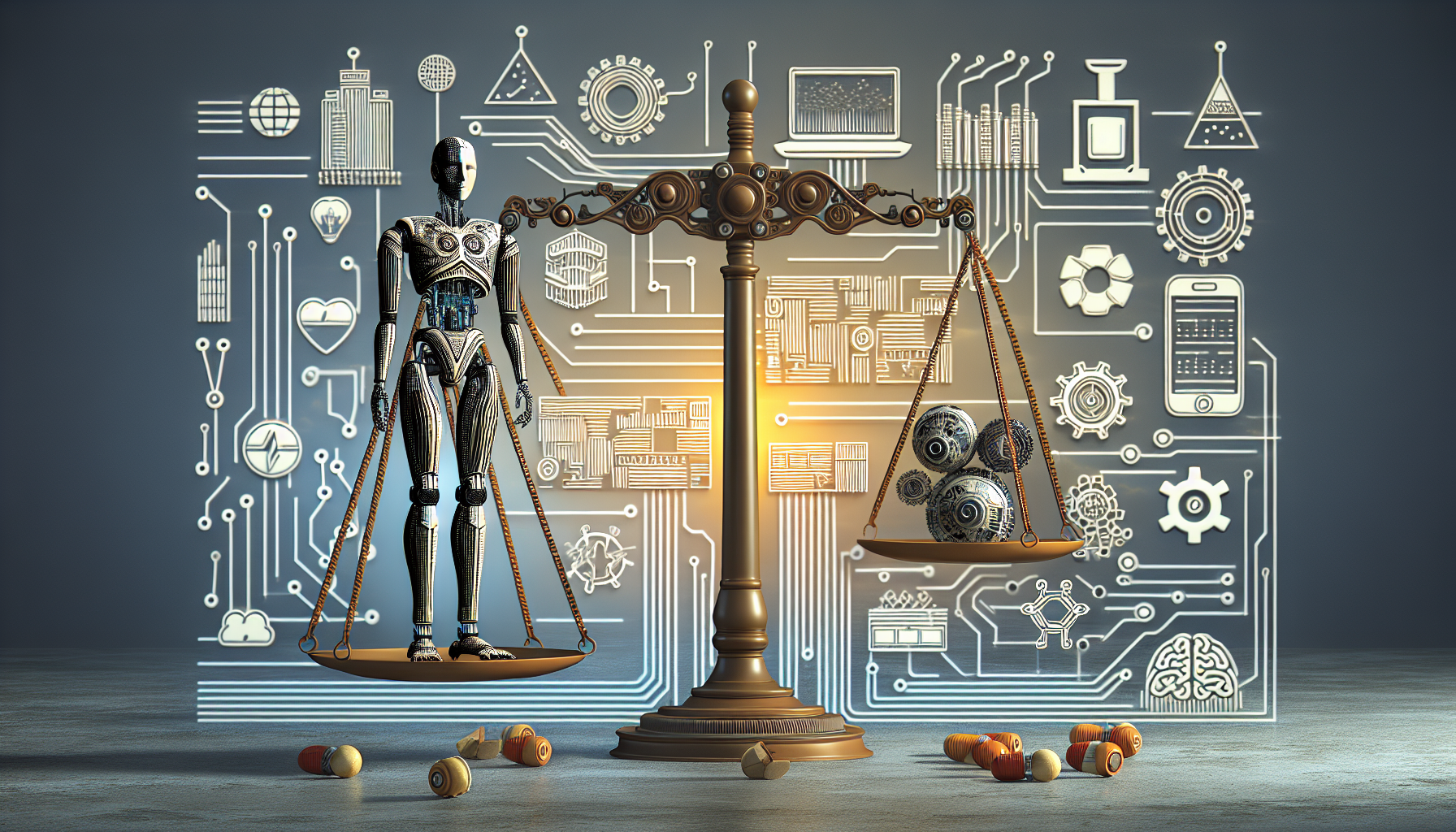Balancing Innovation and Ethics: The Role of AI in Modern Industries
The Rise of AI in Various Sectors
Artificial Intelligence (AI) has revolutionized industries across the globe. From healthcare to finance, retail to manufacturing, AI technologies enable organizations to drive efficiency, enhance decision-making, and improve customer experiences. Machine learning, natural language processing, and robotics are just a few AI branches that have found critical applications in modern sectors.
Healthcare Revolution
In healthcare, AI is facilitating advancements in diagnostics and treatment plans. Algorithms trained on vast datasets can identify patterns in medical imaging faster and often more accurately than human professionals. For instance, AI-assisted radiology is transforming disease detection, prominently in areas like oncology. Companies are deploying AI to develop predictive models that assess patient risk, leading to timely interventions and improved outcomes, thus embodying innovation in life-saving measures.
Financial Services Enhancement
AI’s impact is prominent in the financial services sector where it is optimizing trading algorithms and enhancing risk assessment. Machine learning models analyze market trends to make data-driven predictions, leading to more strategic investments and minimizing losses. Furthermore, AI chatbots streamline customer service by providing instant responses to common queries and managing transactions, showcasing how financial institutions leverage technology to enhance user experience without compromising customer trust.
Understanding Ethical Concerns
Despite the benefits, the rise of AI brings forth significant ethical dilemmas. The potential for biases embedded in AI algorithms can lead to discrimination, making ethics a critical focus area when integrating AI technologies. For instance, if historical data reflects societal inequalities, algorithms trained on this data may perpetuate these biases in hiring, lending, and law enforcement contexts.
Data Privacy and Security
Data privacy is another substantial ethical concern. AI systems function on vast amounts of data, often including sensitive personal information. The misuse of data exposes individuals to risks, raising questions about consent, ownership, and the responsibility of companies in protecting user information. Implementing stringent data security protocols and transparent data usage policies becomes imperative to mitigate these risks while fostering public trust in AI applications.
The Human Element
AI’s role in decision-making can also detach the human element from critical processes. In sectors such as healthcare, over-reliance on algorithms might undermine the importance of human intuition and empathy. When evaluating complex situations like mental health, human judgment plays a crucial role that AI cannot replicate. Striking a balance between algorithmic support and human involvement is essential to ensure decisions reflect not just data but also compassion and ethical considerations.
Regulatory Landscape
Navigating the intersection of innovation and ethics necessitates a comprehensive regulatory framework. Governments and organizations worldwide are beginning to enact policies aimed at guiding AI development responsibly. Regulatory bodies focus on establishing guidelines that address transparency, accountability, and fairness in AI applications. Such frameworks aim to encourage innovation while safeguarding ethical standards, ensuring that advancements in AI do not come at the expense of societal values.
Global Cooperation on AI Policies
Global cooperation is crucial in developing and enforcing effective AI regulations. Various countries are engaged in dialogues to establish common ethical guidelines that transcend borders, recognizing that AI technologies are not confined by geography. Collaborative efforts ensure that responsible AI development occurs on a global scale, fostering a unified approach to ethical challenges associated with AI.
The Corporate Responsibility Shift
Companies implementing AI technologies are increasingly recognizing the necessity of corporate responsibility. A growing number of organizations are establishing ethics boards to oversee AI projects, aiming to uphold ethical principles throughout the development lifecycle. These boards are tasked with evaluating potential biases, ensuring compliance with regulations, and promoting transparent practices, signifying a shift towards integrating ethical responsibility in corporate culture.
Building Trust with Stakeholders
Building trust with stakeholders is essential for companies leveraging AI. Transparency in data usage, clear communication about AI capabilities, and consistent engagement with the public contribute to cultivating trust. Organizations must proactively address concerns and demonstrate a commitment to ethical AI practices, ultimately fostering a collaborative environment that celebrates innovation while prioritizing ethical standards.
The Future of AI and Ethical Innovation
Looking ahead, the balance between innovation and ethics will shape the future of AI in modern industries. Continued advancements in technology necessitate staying vigilant against emerging ethical dilemmas. As AI systems become more sophisticated, the potential for misuse also grows, underscoring the need for constant evaluation of practices and policies.
Emphasizing Ethical AI Development
Emphasizing ethical AI development from the inception stage will cultivate resilience against ethical pitfalls. Developers and industry leaders must prioritize ethics in research and development, focusing on ensuring algorithms are not only efficient but also equitable. Investing in diversity and inclusion within AI teams can reduce biases in AI outputs, enhancing the ethical integrity of technologies while spurring innovation.
Educational Initiatives
Finally, educational initiatives play a crucial role in promoting the understanding of AI ethics. Incorporating ethics into STEM curricula can equip future professionals with the insights and tools necessary to navigate the ethical complexities associated with AI. By preparing the next generation of innovators to think critically about the societal impacts of their work, industries can foster a culture where ethical considerations are integral to technological advancement.
Conclusion
Balancing innovation and ethics in AI is not merely a challenge; it is an essential endeavor for modern industries. As AI continues to evolve, its integration into sectors must reflect a commitment to ethical guidelines, safeguarding human values while driving progress. Engaging in responsible practices, fostering transparency, and advocating for collaboration will shape the trajectory of AI, ensuring its beneficial impact is realized across the globe.


